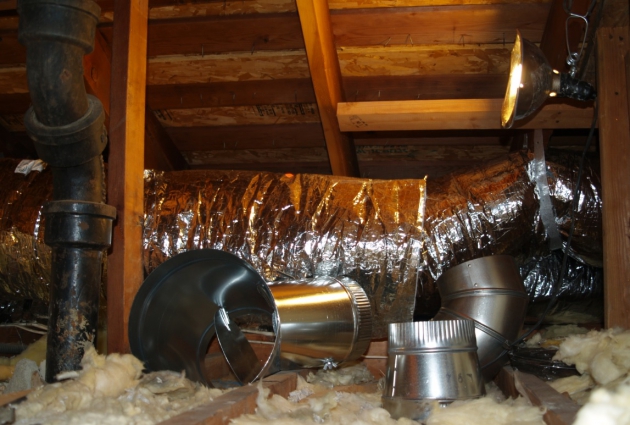Tax Implications of Selling Fast for Cash

When you’re in a situation where you need to sell your house fast, a cash sale can seem like a perfect solution. It allows you to skip over the long process of dealing with real estate agents, showings, and potential buyer financing. However, while the process may seem quick and straightforward, there are important tax implications you need to consider. Whether you’re facing foreclosure, going through a divorce, or simply need to move quickly, understanding the tax obligations associated with a quick sale can help you make better decisions and avoid unpleasant surprises down the road.
In this blog, we will explore the capital gains tax, property value concerns, and other financial planning elements that impact your selling strategy when you choose to sell your house for cash. With the right knowledge, you can maximize the benefit of a cash sale while minimizing your tax implications.
At We Buy Houses in Central Texas, our buying process/guideline for sell your house is designed to make your cash sale as easy and stress-free as possible. We handle all the paperwork and guide you through every step of the process, so you don’t have to worry about complicated tax issues or hidden fees.
Understanding the Tax Implications of a Quick Sale
Selling your home quickly, especially in a cash sale, has different tax implications compared to the traditional home-selling process. When you sell your home fast, it’s important to understand the potential impact of capital gains taxes, especially if the home has increased in value since you purchased it.
Capital Gains Tax and How It Affects Your Sale
One of the primary tax obligations you will encounter when selling a property is capital gains tax. Capital gains are the profits you make from selling a property for more than what you originally paid for it. If you’ve owned the property for more than a year, the gain is classified as long-term capital gains, which are generally taxed at a lower rate than short-term gains (on properties owned for less than a year).
The capital gains tax rate depends on your income and the length of time you’ve owned the property. Long-term capital gains tax rates range from 0% to 20%, depending on your overall income. If you’ve owned the property for less than a year, you’ll face short-term capital gains, which are taxed as ordinary income at rates as high as 37%.
However, when you sell your house for cash and the property has appreciated significantly, understanding how capital gains will impact the sale is essential. If you qualify for exclusions on your primary residence, you may not have to pay taxes on up to $250,000 of capital gains ($500,000 for married couples filing jointly), provided you’ve lived in the home for at least two out of the past five years. If you don’t meet the criteria for the exclusion, you will be responsible for paying taxes on any capital gains above the exclusion limits.
Property Value Considerations
The value of your property can play a significant role in your tax obligations. If your property has increased in value since you purchased it, the capital gains tax will be assessed on the difference between the sale price and the original purchase price. However, if the property has decreased in value, you may face tax implications that are more favorable. Property value can be one of the determining factors in how much tax you will owe when selling your home.
In a cash sale, the property value is generally determined through a simple appraisal or an offer based on the market. Unlike traditional sales where buyers might negotiate, a cash sale typically avoids lengthy negotiations on price, leading to a quicker transaction. However, understanding your property value and how it impacts your tax obligations is crucial to avoid unpleasant surprises when it’s time to file your taxes.
Financial Planning and Selling Strategy
When selling your home, especially in a quick sale, financial planning is essential. Taxes can significantly affect your overall net proceeds from the sale. Whether you’re selling to pay off debts or fund another investment, it’s important to understand how your sale will impact your long-term financial situation.
If you’re looking for ways to minimize your tax obligations, consider your selling strategy. For example, holding on to the property for over a year to qualify for long-term capital gains tax rates can save you money. Another option is to explore tax-deferred strategies like a 1031 exchange if you’re selling a real estate investment property and looking to reinvest the proceeds into another similar property.
Having a solid selling strategy in place can help you avoid unexpected tax implications and ensure that you get the most out of your cash sale.
Common Questions About Tax Implications of Selling for Cash
As a motivated seller, you likely have several questions about the tax implications of selling your property quickly for cash. Below are some common questions that often arise:
How are capital gains taxes calculated when I sell my house fast?
Capital gains taxes are calculated based on the difference between the selling price and the original purchase price of your home. If you’ve owned the property for more than one year, you will be subject to long-term capital gains tax, which is taxed at a lower rate than short-term capital gains.
What if I sell my home at a loss? Do I still owe taxes?
If you sell your home for less than you paid for it, you may not have to pay capital gains tax. Instead, you may be able to use the loss to offset other taxable gains in your financial planning. However, if it’s your primary residence, losses typically can’t be deducted for tax purposes.
Do I have to pay taxes on a cash sale?
Yes, even in a cash sale, you are still required to pay taxes on any capital gains from the sale, unless you qualify for a tax exclusion or other exemptions. It’s important to factor this into your selling strategy.
How can I reduce taxes when selling my property?
To reduce your tax obligations, consider holding your property for more than a year to qualify for long-term capital gains tax rates. You may also be able to explore tax-saving strategies like a 1031 exchange for real estate investment properties.
When do I need to pay taxes on the sale of my property?
Taxes on the sale of your property are generally due when you file your annual income taxes, typically by April 15th of the following year. If you sell your home in December, for example, you will report the sale when filing taxes for the following year.
Let Us Help You Sell Your House Fast with Ease
Selling your home quickly for cash can be an excellent solution if you need to move quickly or face financial challenges. However, it’s essential to understand the tax implications and financial considerations that come with the sale. At We Buy Houses in Central Texas, we offer a simple and hassle-free process for selling your property quickly without the usual complications.
Our buying process/guideline for sell your house allows you to bypass the long, drawn-out process of traditional real estate sales while ensuring you understand the tax obligations involved. We offer fair cash offers for your home and are committed to making the sale smooth, efficient, and straightforward.
Visit us today to get a cash offer for your home. Let us help you navigate the tax implications and make your home sale as easy as possible!





